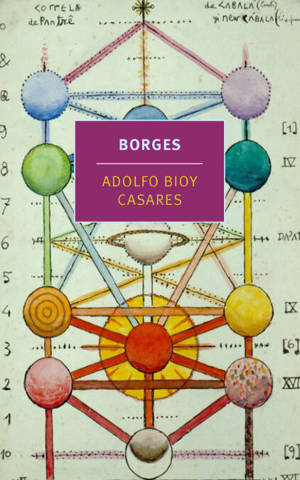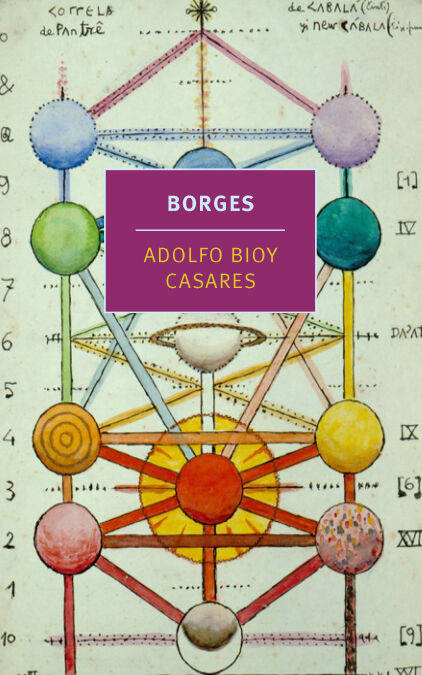
- Afhalen na 1 uur in een winkel met voorraad
- Gratis thuislevering in België vanaf € 30
- Ruim aanbod met 7 miljoen producten
- Afhalen na 1 uur in een winkel met voorraad
- Gratis thuislevering in België vanaf € 30
- Ruim aanbod met 7 miljoen producten
Zoeken
Omschrijving
In Adolfo Bioy Casares’s diaristic portrait of his friendship with Jorge Luis Borges, the two titans of Latin American letters discuss their shared literary passions (including police procedurals, gothic novels, fantastic literature, and more); take down canonical authors such as Shakespeare and Joyce; and together, model the rollicking and joyous way a life in literature should be lived.
Jorge Luis Borges might be said to be the most significant Spanish-language writer since Cervantes, and Borges is an astonishing document of the life of this twentieth-century giant through the diaries of his friend, the fellow Argentine writer Adolfo Bioy Casares.
Over the course of their remarkable, five-decade-long friendship, Bioy Casares kept meticulous record of their energetic discourse on everything from the philosophies of authorship to the virtues of detective plots to the inner workings of sentences and of people. Devotees of police procedurals, the gothic novel, gaucho literature, and fantastic literature, they perform a mesmerizing double act, wielding their razor wit to offer blistering critiques of canonical writers such as Goethe, Shakespeare, Baudelaire, and Joyce.
Bioy Casares paints a portrait of Borges as not only a writer at the pinnacle of his craft, but also an omnivorous reader who delights in nothing more than applying his staggering erudition to the sheer, unadulterated joy of literature. Borges is literature at its most wondrous, its most scathing—is literature as life itself.
Jorge Luis Borges might be said to be the most significant Spanish-language writer since Cervantes, and Borges is an astonishing document of the life of this twentieth-century giant through the diaries of his friend, the fellow Argentine writer Adolfo Bioy Casares.
Over the course of their remarkable, five-decade-long friendship, Bioy Casares kept meticulous record of their energetic discourse on everything from the philosophies of authorship to the virtues of detective plots to the inner workings of sentences and of people. Devotees of police procedurals, the gothic novel, gaucho literature, and fantastic literature, they perform a mesmerizing double act, wielding their razor wit to offer blistering critiques of canonical writers such as Goethe, Shakespeare, Baudelaire, and Joyce.
Bioy Casares paints a portrait of Borges as not only a writer at the pinnacle of his craft, but also an omnivorous reader who delights in nothing more than applying his staggering erudition to the sheer, unadulterated joy of literature. Borges is literature at its most wondrous, its most scathing—is literature as life itself.
Specificaties
Betrokkenen
- Auteur(s):
- Vertaler(s):
- Uitgeverij:
Inhoud
- Aantal bladzijden:
- 704
- Taal:
- Engels
Eigenschappen
- Productcode (EAN):
- 9781681377551
- Verschijningsdatum:
- 12/10/2026
- Uitvoering:
- E-book
- Beveiligd met:
- Adobe DRM
- Formaat:
- ePub

Alleen bij Standaard Boekhandel
+ 24 punten op je klantenkaart van Standaard Boekhandel
Beoordelingen
We publiceren alleen reviews die voldoen aan de voorwaarden voor reviews. Bekijk onze voorwaarden voor reviews.







